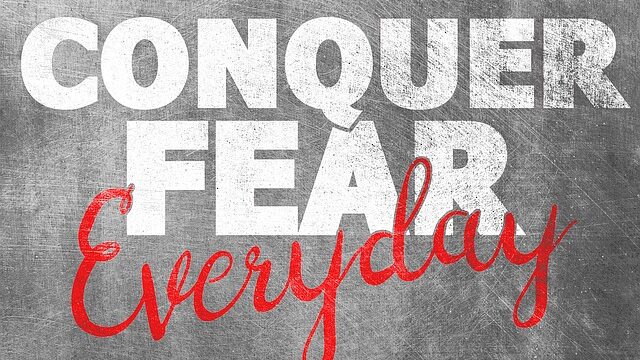This site contains affiliate links to products sold by selected self improvement partners. We may receive a commission for purchases made through these links.
In the previous article, we look at freelancing, what it is and the basics of what is involved.
So. You’ve laid out your plans. You’ve written your goals down.
And, somehow, you have that nagging feeling that you are selling yourself short.
Despite this feeling, you are too afraid or too unsure to take the necessary next step.
It never feels like the “right time” (newsflash: it is never the right time), it never seems like the “responsible” thing to do and you always feel like you’re inviting failure.
In short, you are being held back by fear. So the question is: how can you overcome those fears?
The answer might just be something called “fear setting”. Read on and we’ll look at what this means and how it could help you.
The Concept
The general idea behind “fear setting” is that you’re going to more clearly define what your fears are and thus start coming up with more effective ways to overcome them.
A bit like goal setting, right?
For many of us, our fears are very much abstract and general, rather than being concrete and specific.
When you take the time to identify the true nature of those fears, they can often end up losing their power over you.
For example, let’s say that you want to start your own business.
You might have vague but undefined fears that:
- Your business will fail and people will think less of you
- Your partner will think what you’re doing is foolish and judge you
- You’d have to leave your job and you might not be able to get a job back if things don’t work out
- You’d make yourself unemployable by creating a gap on your CV/resume
- You’d have to take out a big loan, which would result in unending crippling debt.
Analyze those fears – are they real?
These all seem like legitimate fears.
But now you’re going to actually write those fears down and thereby make yourself fully aware of what they are.
Once you’ve done this, you can then start to go through them one by one and address
- how realistic each fear is,
- what you would do if it actually came true and
- how you could prevent it from happening.
For example:
- Your business will fail and people will think less of you
- Most people would in fact be much more likely to think more of you for having tried something exciting
- You don’t have to tell anyone, unless you are directly accountable (for example, to creditors, investors)
- Who cares?
- It is OK to make mistakes. The question is: are you prepared to learn from them? Starting out on a new venture is like a baby learning to walk.
2. Your partner will think what you’re doing is foolish and judge you
- Ask them
- They will probably think what you’re doing is inspiring and they could (or would) support you
- Especially if you can show them how you’re going to make it work
3. You’d have to leave your job and you might not be able to get a job back if things don’t work out
- You could run your business in the evenings or weekends and thus keep your job
- You could go part time and run your business at the same time
- You could take a sabbatical to try launching your business
4. You’d make yourself unemployable by creating a gap on your CV/resume
- Most companies will overlook that, in fact, it will likely show gumption and initiative
- Your old job will likely take you back
- Worst case scenario? You take a lower paid job
- A career coach might be able to help you explain those gaps
5. You’d have to take out a big loan, which would result in unending crippling debt
- Or you could get a PayPal loan
- Or a loan from the bank of Mum and Dad
- Or help from a business partner
- Or funding through Kickstarter
Fear setting shows us that the only thing to fear, is fear itself, and the one thing you do have control over is your thoughts!
Napoleon Hill, in his classic book “Think And Grow Rich”, discusses six basic fears and their symptoms.
They are as follows:
- poverty
- criticism
- ill health
- loss of love of someone
- old age, and
- death.
You could add fear of failure and fear of success to this list.
In the next article we will look at why you would even want to own a job.
PS: Robert Kiyosaki, famed author of “Rich Dad Poor Dad”, has a really neat definition for fear as it applies to this kind of situation…
“False Evidence Appearing Real”…
PPS: You could also try hypnosis…if all else fails…
Image by ShonEjai from Pixabay
This site contains affiliate links to products sold by selected self improvement partners. We may receive a commission for purchases made through these links.

